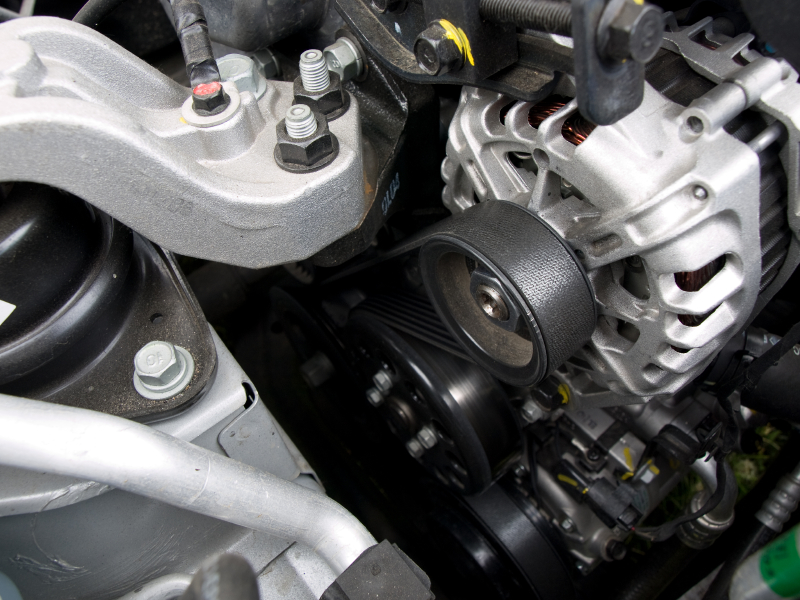A Toyota alternator typically lasts around 100,000 to 150,000 miles before needing replacement. Regular maintenance and careful driving can extend its lifespan.
The alternator is a vital component in a vehicle’s electrical system, responsible for charging the battery and powering the electrical components while the engine is running. Over time, the alternator can wear out due to the constant use and heat generated during operation.
Factors such as driving conditions, climate, and overall vehicle maintenance can also impact the lifespan of the alternator. Understanding the average lifespan of a Toyota alternator can help vehicle owners anticipate when they may need to consider replacement or repairs, ensuring the smooth and reliable operation of their vehicle.
Understanding Toyota Alternators
Toyota alternators are essential components of a vehicle’s electrical system, responsible for converting mechanical energy into electrical energy. They play a crucial role in charging the battery and powering the electrical systems while the engine is running. The average lifespan of a Toyota alternator varies depending on driving conditions, maintenance, and quality of the part. Typically, a well-maintained Toyota alternator can last for 100,000 miles or more. It is important to keep an eye out for signs of a failing alternator, such as dimming lights, strange noises, or difficulty starting the vehicle. Regular inspection and maintenance can help prolong the lifespan of a Toyota alternator and prevent unexpected failures.
Factors Affecting Longevity
Routine maintenance impact: Regular maintenance, such as checking the belt tension and ensuring proper electrical connections, significantly contributes to the longevity of a Toyota alternator. Routine inspections can help identify any potential issues before they escalate and lead to premature failure.
Environmental influences on lifespan: The lifespan of a Toyota alternator can also be affected by environmental factors such as temperature extremes and high humidity. Exposure to extreme heat or cold can lead to wear and tear on the alternator components, while excessive moisture can cause corrosion and deterioration over time.
Signs Of Failing Alternators
Signs of Failing Alternators: A failing alternator can manifest warning indicators such as dimming headlights, dashboard warning lights, and a dead battery. Performance red flags include electrical issues, odd smells, and strange sounds. It’s essential to be aware of these signs to ensure the longevity and efficiency of your Toyota alternator.

Credit: resource-center.meineke.com
Extending Toyota Alternator Lifespan
To extend the lifespan of your Toyota alternator, regular maintenance is crucial. Keeping the wiring and connections clean and tight, checking the belt tension, and ensuring the battery is in good condition can help maximize the longevity of your alternator.
Additionally, driving habits, weather conditions, and the quality of the alternator can also influence its lifespan.
| Maintenance tips | Best practices for longevity |
|---|---|
| Regular Inspection and Cleaning | Inspect the alternator for any signs of wear or damage and clean it regularly to prevent buildup of debris or dirt that could affect its performance. |
| Check the Drive Belt | Regularly inspect the condition and tension of the drive belt and replace it if necessary to prevent it from causing stress on the alternator. |
| Maintain Proper Battery Health | Ensure the battery is in good condition and the charging system is working properly to avoid unnecessary strain on the alternator. |
| Monitor Electrical Load | Be mindful of the electrical load on the vehicle and avoid overloading the alternator to maintain its optimal performance. |
Frequently Asked Questions For How Long Does A Toyota Alternator Last
How Long Does A Toyota Alternator Last?
The lifespan of a Toyota alternator generally ranges between 8 to 12 years, depending on usage and maintenance. Regular inspection and timely replacement of worn parts can prolong its longevity. Factors such as driving habits and environmental conditions also play a role in determining its lifespan.
What Are The Signs Of A Failing Toyota Alternator?
Common indicators of a failing Toyota alternator include dimming headlights, electrical issues, strange noises, and dashboard warning lights. If you notice these symptoms, it is advisable to have your alternator inspected by a professional technician to prevent unexpected breakdowns.
Can A Bad Battery Affect The Performance Of A Toyota Alternator?
Yes, a faulty battery can indeed impact the performance of a Toyota alternator. A weak or malfunctioning battery places additional strain on the alternator, leading to premature wear and potential failure. Therefore, it’s essential to ensure the proper functioning of both the battery and alternator to maintain the vehicle’s electrical system.
Conclusion
A Toyota alternator typically lasts between 100,000 to 150,000 miles. Regular maintenance and usage patterns can also affect its lifespan. Understanding the signs of a failing alternator and addressing the issue promptly can help avoid unexpected breakdowns and costly repairs.
Keep an eye on your vehicle’s electrical system for optimal performance.






